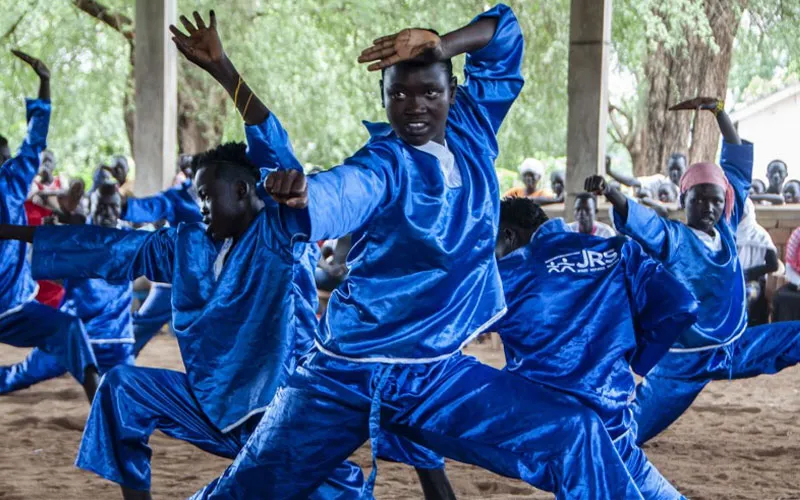Malakal, 06 April, 2022 / 5:35 pm (ACI Africa).
More than 250 displaced boys and girls from South Sudan are learning the value of discipline and teamwork through sports in a Psycho-Social Support program (MHPSS) spearheaded by Jesuits Refugee Service (JRS), an international refugee entity of the Society of Jesus (Jesuits).
In a Wednesday, April 6 report, JRS leadership highlights martial arts as one of the sports that the young boys and girls engage in and says that the sport’s instructor, Issac Ayub, focuses on discipline and teamwork as the pillars of the training.
“That is what martial arts are all about: discipline, teamwork, and personal challenges. Issac wishes to convey this message to his students,” JRS leadership says in the report.
Officials of the Jesuit entity in South Sudan say that since its inception in the country in 2013, the Catholic entity has been the center “for young refugees to express themselves through sport.”
They say that the training of the sport is centered in Maban, a county located in the Upper Nile State of South Sudan covered by the Catholic Diocese of Malakal.








